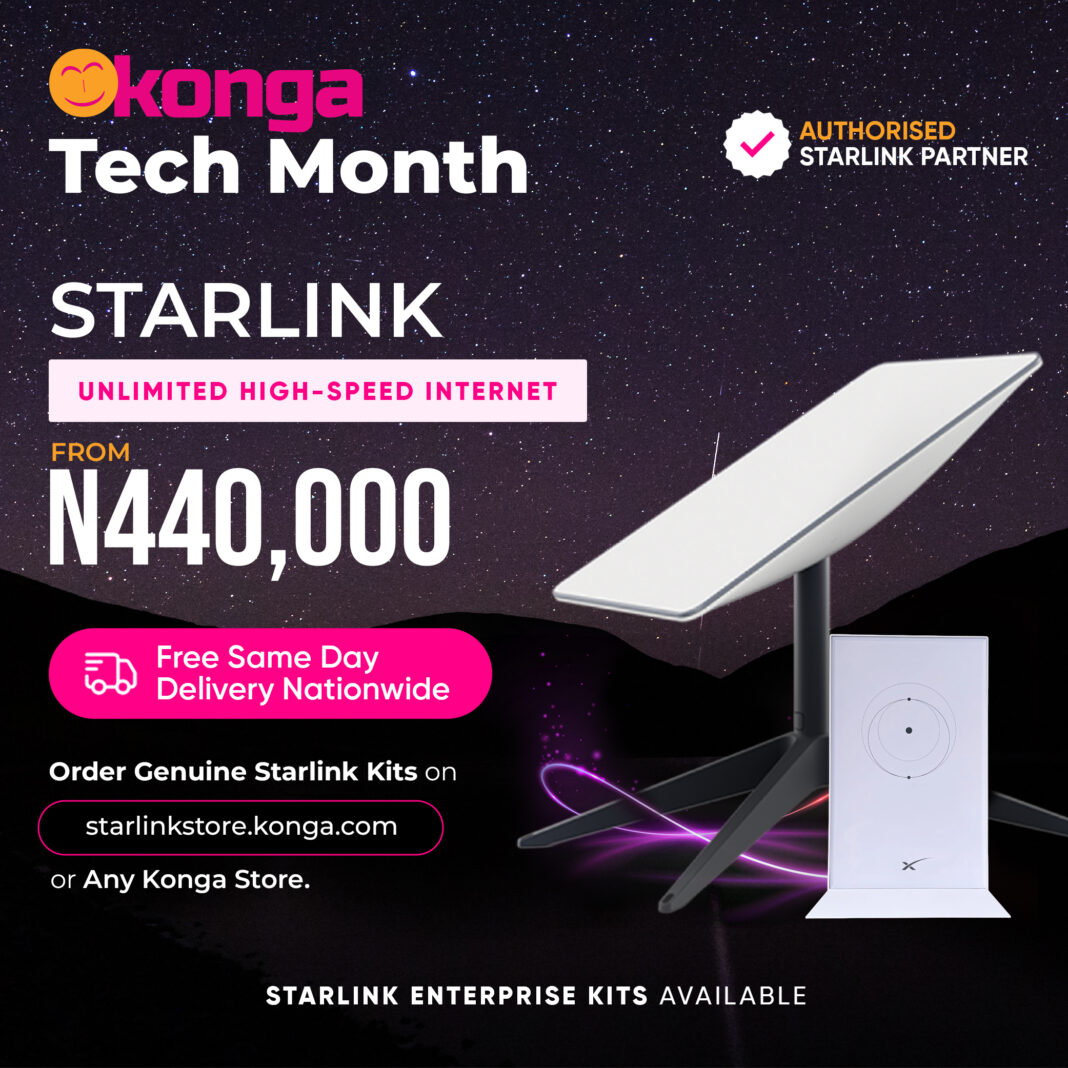By Dr. A U Babatunde
In recent years, partnerships between e-commerce platforms and tech companies have been instrumental in driving innovation and progress in various sectors. One such partnership that has garnered significant attention is the collaboration between Konga, Nigeria’s composite e-commerce group, and Starlink, the satellite internet service provided by SpaceX. This groundbreaking partnership is poised to revolutionize internet accessibility in the country, bringing about a myriad of benefits for businesses, individuals, and the nation as a whole. For example, educational institutions, business and houses can access internet services anywhere in the country with their enterprise kit.
One of the biggest obstacles to widespread internet adoption in Nigeria has been the country’s vast and diverse geography, which has made it difficult and costly to establish traditional terrestrial infrastructure. Starlink’s satellite-based internet service offers a game-changing solution by beaming high-speed internet directly from space, effectively bypassing the need for extensive ground-based infrastructure. Partnering with Konga has made it easier than ever for Nigerians to access this cutting-edge technology. Those living in remote or underserved areas can now enjoy seamless internet connectivity, eliminating the digital divide that has long plagued the nation.
I am very excited about this partnership because it shows that American companies still have confidence in companies like Konga and in the Nigerian economy. Konga, the exclusive shop in shop e-commerce partner for Apple, Samsung, L’Oreal, and many more has continued to boost the domestic economy with the inflow of foreign direct investments from these global brands with the potential to catalyse economic growth. With this, a lot more deals, I hope, will flow in to ensure a robust and productive market for consumers.
According to a report by the World Bank, a 10% increase in broadband penetration can lead to a 1.38% increase in GDP growth in developing countries. This partnership between Konga and Starlink can open up new opportunities for entrepreneurs, enabling them scale their operations and compete on a level playing field with their international counterparts.
Furthermore, reliable internet access can facilitate academic research and collaboration. This would encourage innovation domestically and allow Nigerian academics and institutions to participate in the global knowledge economy. So, integrating ICT into education will improve learning outcomes, promote digital literacy, and enhance teacher training. By bridging the digital divide, Konga, through Starlink, empowers Nigerian students and educators, equipping them with the skills and knowledge required to thrive in the 21st century.
Beyond the economic and educational benefits, the Konga-Starlink partnership tends to foster social inclusion and empower communities across Nigeria. With access to high-speed internet, individuals can stay connected with loved ones, access online services, and participate in the digital economy, regardless of location. By bringing affordable and reliable internet to areas with limited access, the Konga-Starlink partnership can help bridge the digital divide and ensure that no Nigerian is left behind in the digital revolution.
The healthcare industry in Nigeria stands to benefit greatly from the collaboration between Konga and Starlink. In places where access to specialized medical treatment is limited, healthcare practitioners can use telemedicine systems to facilitate remote consultations, diagnosis, and even surgery, provided they have dependable internet connectivity. In underserved areas especially, telemedicine has promise for increasing access to healthcare services, cutting costs, and improving care quality.
The partnership between Konga and Starlink represents a significant step forward in bridging the digital divide in Nigeria. By leveraging SpaceX’s innovative satellite-based internet service and offering it at an affordable price point, this collaboration has the potential to transform various sectors. As Nigeria continues to embrace the opportunities this partnership presents, the future looks promising for technological advancement, societal development, and global competitiveness.
Dr. A U Babatunde is a Public Analyst













